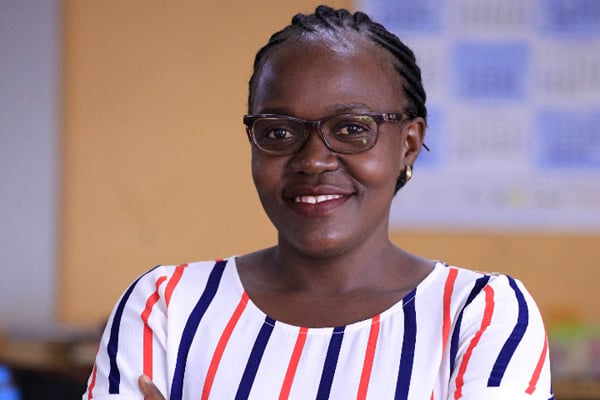Prime
Court sets date to hear petition against anti-gay law

Lawyers Nicholas Opiyo (L) and Derrick Tukwasiibwe (C) interact with MP and petitioner against the anti-gay law, Fox-Odoi Oywelowo, at the Constitutional Court in Kampala on October 2, 2023. PHOTO/ABUBAKER LUBOWA
What you need to know:
- The Anti- Homosexuality Act, 2023 prescribes tough penalties for various offences, including participating in promotion, facilitation, and failure to report acts of homosexuality. Penalties range from death for aggravated homosexuality to imprisonment not exceeding 20 years.
The Constitutional Court has set December 11 to set issues to determine four petitions challenging the legality of the Anti-Homosexuality Law that was enacted in May 2023.
The court set the date after the petitioners agreed to consolidate all four petitions and 19 applications that were filed by different individuals and groups.
The petitioners include West Budama North East MP Fox Odoi, Uganda’s deputy High Commissioner to South Africa Kintu Nyango, veteran journalist Andrew Mwenda , Makerere University Law professors Sylvia Tamale and Busingye Kabumba, and several civil society organisations.
Sitting as a single judge of the Constitutional Court on November 28, Justice Geoffrey Kiryabwire agreed with the Attorney General’s submission to have all the petitions consolidated.
“If we are to handle one by one, we shall finish in 2026. We need to bring the petition for trial as quickly as possible. I want to see cooperation. You are all targeting the same law and I do not see why there are four petitions. I find it necessary to see the parties and see if they are interested in the matter,” Justice Kiryabwire held.
Mr Odoi, a former legal counsel to President Museveni, told court that they will go with the court’s guidance together with other petitioners to have the matter consolidated.
“Basing on the court’s direction and on the consent of parties, all petitions should be consolidated and parties should file the consent by today (yesterday). The parties have also committed themselves not to make any amendments in the four petitions during trial or hearing,” Justice Kiryabwire observed.
However, the court held that before the hearing of the main petition, it will have to first deal with an application by Born-again Pastor Martin Ssempa who wants to join the Attorney General to defend the Anti-Homosexuality Law.
Among some of the grounds for the petition, the complainants contend that the Anti-Homosexuality Act, 2023 alters a 2014 Constitutional Court decision that nullified a similar law and it is, therefore, inconsistent with Article 92 of the Constitution.
The petitioners claimed the Act was passed within six days instead of the 45-day period provided for by the rules of Parliament.
They further allege that Parliament enacted the controversial law on May 2 without meaningful and adequate public participation, which is inconsistent and in contravention of Articles 1, 2, 8A, 20, 36, 38, 79 and Objective 11(1) of the National Objectives and Directive Principles of State Policy of the Constitution.
However, in defence, the Attorney General, who represents the government, said:” The provisions of the Anti-Homosexuality Act, 2023 are not inconsistent with or in contravention with the provisions of the Constitution, international treaties, covenants and declarations.”
The government lawyers contend that the legislation does not alter the 2014 decision by the Constitutional Court, saying: “The decision/judgment was based on the lack of quorum and did not go to the substance of the legislation.”
They added that the Act was passed by Parliament after conducting wide consultations with the public and their representatives in the form of written and oral memoranda.




